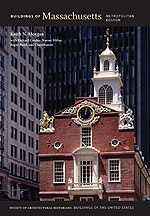
A glacial kettle-hole—the deepest natural lake in Massachusetts—Walden Pond is the setting for Walden, Henry David Thoreau's classic of American literature, philosophy, ecology, and conservation. Thoreau (1817–1862) built a one-room cabin on a lakeside woodlot owned by his transcendentalist mentor Ralph Waldo Emerson. Thoreau moved in on July 4, 1845, and stayed for two years, journaling, writing A Week on the Concord and Merrimack Rivers, and living events he would recount in “Civil Disobedience” and Walden. He lamented deforestation by woodcutters and a railroad line built along the western edge of the pond in 1844.
Thoreau's cabin was moved and dismantled, and the woodlands cut. A shoreline amusement park flourished from 1866 until burning in 1902. In 1922 Emerson's heirs gave the site to the state, and in 1945 Roland Wells Robbins identified and marked the foundation of Thoreau's chimney. Now 411 acres, Walden Pond Reservation is visited by more than half a million people each year, some exploring the replica cabin near the visitors' center or leaving stones at a memorial cairn. Against accelerating development pressures, efforts continue to preserve more of the surrounding Walden Woods ecosystem in Concord and Lincoln, a unique ecological and cultural landscape.

